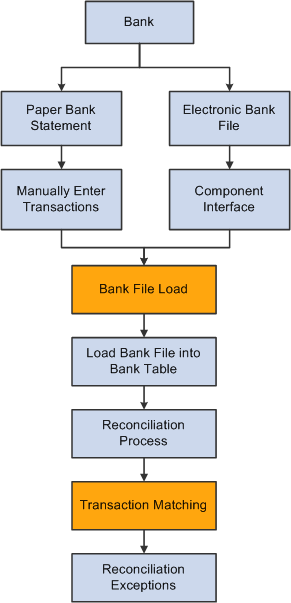What’s Bank Reconciliation and How Does It Work?
Learn how bank reconciliation works, why it’s important and how you can make it easier to identify mistakes in your small business bookkeeping.

Bank reconciliation is the process of comparing your internal financial records to those provided by your bank. Bank recs are an incredibly important part of small business bookkeeping because they can help you identify, alleviate and prevent the inconsistencies that impact your bank account, such as accounting errors and fraudulent transactions.
How Does Bank Reconciliation Work?
Bank reconciliation involves periodically making sure that the transactions you have assigned to a particular bank or credit card account in your accounting software match your statements.
You’ll want to make sure there are no:
- Duplications
- Omissions
- Date errors
- Amount errors
A bank rec typically covers the same time period as a bank or credit card statement — the one you download as a PDF or receive in the mail.
When you receive your latest statement, you’ll go through the process of double checking all transactions. Your bank rec is complete when your ending balance at the end of the period matches between your statement and your accounting software.
Good accounting software keeps track of your past reconciliations in case you need to go back and look at prior periods.
Bank reconciliation works best when completed at regular intervals for all bank and credit card accounts. At a minimum, bank reconciliation should be conducted shortly after the end of each statement period. Businesses that make a lot of transactions may wish to do more frequent spot checks before “completing” a bank rec when the newest statement becomes available.
Why is Bank Reconciliation Important?
Bank reconciliations are an important step in safeguarding your business because they help you identify discrepancies in accounting before they grow into a serious problem. The longer a business goes without a bank reconciliation, the more likely it is to discover that cash balances are much lower than projected, which can result in bounced checks and overdraft fees.
Spot Fraud Before It’s Too Late
Bank reconciliation should be an important priority for every small business as it enables you to spot signs of fraud before it’s too late. Unlike consumer accounts, small business accounts are not federally protected, which means banks are under no obligation to cover fraud or errors in the account.
When reconciling your accounts, look for the following red flags:
- Were any checks duplicated or changed?
- Were any checks issued without authorization?
- Were there any unauthorized transfers or withdrawals from the business account?
- Are you missing any deposits?
Bank reconciliation is the fastest and most reliable way to answer those questions, catch fraud or cash manipulations, and minimize the damage they can inflict upon your business.
Disadvantages of Manual Bookkeeping
The process of bank reconciliation is straightforward and simple, but also tedious and labor intensive. The majority of small businesses spend hours identifying individual transaction records to spot inconsistencies that can be alleviated.
Manual bookkeeping and bank reconciliation involve the use of paper ledgers and financial journals to record transactions. These tools are not only inefficient, they’re susceptible to human error.
Streamline Bank Recs with an All-in-One Accounting Tool
Using a consolidated, all-in-one accounting platform is far superior to manual bookkeeping for many reasons, but primarily because it enables small businesses to:
- Reduce the time spent on manual data entry.
- Minimize the number of mistakes attributed to human error.
- Increase the accuracy of profit and loss statements.
- Provide an archive of all financial transactions including receipts and pending checks.
- Maximize data security with regular backups.
Most importantly, a tool that connects directly with your bank account removes the burden of collecting, comparing and analyzing financial data for bank reconciliation, which leaves you free to focus on expanding your business.
This article was originally published on the author’s blog and reprinted with permission.
Business & Finance Articles on Business 2 Community
(57)

